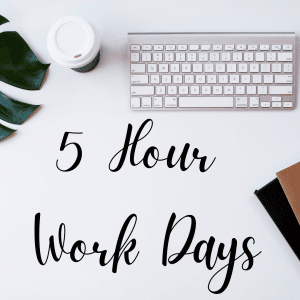Over the course of six blogs, we are looking at Menopause. Why? Because so many women go through it, without understanding the changes, and how they can manifest. I was diagnosed with burnout back in 2011. I realise, with hindsight, that menopause was a major contributing factor to my symptoms and mental state. Are you in a similar situation? We can have a much better transition if we have a better understanding of menopause. We can learn to work with our bodies and find our personal path.
In this blog we will be looking at menopause in the workplace and why it is such an important issue. What needs to change about the attitude towards menopause and symptoms in the workplace?
How menopause affects women in the workplace
Did you know that 13 million women in the UK are going through menopause at any one time? 80% of them are at work? While we all know that menopause physically affects only women, when it comes to the workplace it can affect everybody. In any job where there are female employees present, it should be taken into consideration that the possibility of them having symptoms, while at work, is very high. There are a possible 49 symptoms of menopause, and any number of them can affect productivity and performance at work.
If you think about your current job, and whether you are going through the menopause, would you say you are comfortable in your workspace to cope with it? According to a survey by Forth with Life around 90% of women say that their workplace does not offer any help to menopausal women. 72% say that changes need to be made to accommodate menopausal women in the workplace.
How symptoms affect women in the workplace
 If you have experienced menopausal symptoms, then it will be no secret that they can disrupt your daily work life. 41% of those same surveyed women said that their poor concentration and forgetfulness causes them to make mistakes and underperform. Menopause can also cause difficulty concentrating, depression and anxiety during work and employers can easily dismiss that too as underperforming. If your employer has experienced the menopause themselves they may be a little more uncerstanding. However, those who have not been taught how to deal with it can easily misunderstand how serious these symptoms are.
If you have experienced menopausal symptoms, then it will be no secret that they can disrupt your daily work life. 41% of those same surveyed women said that their poor concentration and forgetfulness causes them to make mistakes and underperform. Menopause can also cause difficulty concentrating, depression and anxiety during work and employers can easily dismiss that too as underperforming. If your employer has experienced the menopause themselves they may be a little more uncerstanding. However, those who have not been taught how to deal with it can easily misunderstand how serious these symptoms are.
Managing your menopause is a great first step to coping. Finding natural solutions such as ones we have discussed in our Natural VS HRT blogs may really help you. Maybe you have a co-worker going through a similar experience? Could you ask anyone around you for support?
How does this affect you as an employer?
As of 2019 studies show that there is a huge rise in employment in women between the ages of 50 and 64. This is prime time for menopause to be an issue, and although some are choosing to stay in work, many feel as though they cannot cope with the symptoms and stress. This results in possibly leaving work or a rise in absence. One in four women have considered leaving work because of menopause, and according to BUPA around 990,000 already have. If a woman quits work due to unmanageable symptoms it will cost the company money. Replacing an employee can cost anywhere between 90% – 200% of what it originally cost to pay that employee. For exmaple, if they earned say £25,000, that could cost anywhere up to £50,000. This is before taking into consideration other elements such as:
- Expertise, skills and experience lost
- Recruiting, interviewing and training a new employee
- The client relationships they built
- Cultural impact
- Loss of productivity
What can you do as an employer to help?
When it comes to the wellbeing of women in the workplace, topics such as menopause should be taken seriously. Simply talking about menopause, raising awareness to all employees and normalising it is extremely helpful. Especially when employees might feel embarrassed to address it or made to feel like it is a taboo subject. In addition, here are some things employees can introduce to better the help and understanding of menopause in the workplace:
- Training for all line managers
- Support groups
- A safe place to talk in the office
- A quiet rest area
- Flexible work hours and shift arrangements
- Facilities for physical symptoms such as showers, fans and clean bathrooms
- Introduce a menopause policy
The government are currently investigating a manifesto for menopause at work. This was put forward by the CIPD in order to bring more attention to the lack of awareness and support surrounding menopause in the workplace. Bringing a menopause policy into organisations would ensure the wellbeing of employees, and help shed the negative talk surrounding it.
If you would like to stay ahead of the curve and think about your wellbeing strategy to incorporate a menopause policy now, contact Alison Charles, Wellbeing Consultant:
Tel: 07768 493157
Office: 020 3290 3157
Email: alison@alisoncharles.co.uk
Twitter: @alisonjcharles
LinkedIn: Alison Charles
Facebook: Alison Charles: Wellbeing in the Workplace
-
- Taboo and Ignorance
- Menopause and Stress
- Natural VS HRT – Part 1
- Natural VS HRT Part 2
- Menopause in the Workplace
- The Hidden Gift of Menopause





